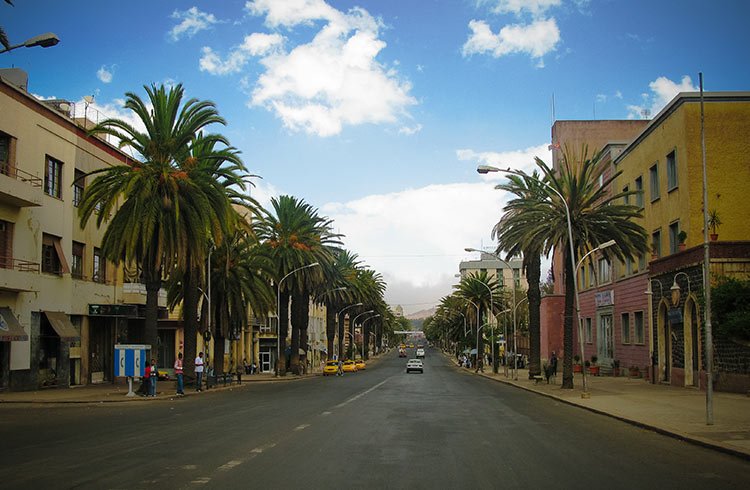The Political Situation in Eritrea: What You Should Know
This northeastern African country has evolved from an Italian colony to a part of Ethiopia to its own governing nation. The process of getting there, however, has been challenging.
 Photo © Getty Images/HomoCosmicos
Photo © Getty Images/HomoCosmicos
Eritrea fought with Ethiopia over borders from 1998 to 2000, and United Nations peacekeepers only ceased patrolling the area in March 2008.
As it stands today, military forces from both countries remain strong along the border areas and crossing between the two is not allowed. Tsorona, Humera and Zalambessa remain particularly dicey. Travellers must stay at least 25 km away from the Ethiopian border and the Southern Red Sea region, which includes the port of Assab. The town of Barentu is to be avoided as well.
Eritrea also has problems with Djibouti, as 2008 brought fatal fighting between the two countries after border disputes. It's advised that tourists also stay at least 25 km away from Eritrea's border with Djibouti, as well, as the border situation remains unstable.
But wait, there's more! While Eritrea and Sudan mostly get along, their border-crossing procedure is vague and changes all the time. Going from Eritrea to Sudan north and west of Keren-Barentu road, travellers might be robbed or attacked by insurgents. Tensions can also be fatally dangerous, with a 2009 vehicle attack on a road just north of Keren resulting in three deaths.
Traveling anywhere near the border with Sudan, particularly the town of Tesseney and the area north and west of Agordat, Nakfa and Barentu, is warned against. Abiding by these restrictions for all borders would be easy if the borders with these countries were all clearly marked. If you are unsure of whether or not you are heading into dangerous territory, the smartest advice is to avoid going there. The most dangerous areas do require travel permits.
In addition to border issues, political repression runs rife throughout the country. Citizens can not speak out against the government and news outlets are closely controlled. Under no circumstances should you challenge an inhabitant to a discussion on political problems. Many of the Eritrean citizens are very scared of the government and of risking saying anything poor about it.
It does not mean they approve of the situation in the country, but they may not feel empowered to do anything about it. A journalist posting on a popular travel forum says he encountered rampant repression of freedom of speech and expression while reporting in Eritrea. Reports indicate that oppression is getting worse, not better. This, in addition to open-ended military service mandated in the country, has caused a good number of citizens to flee to Europe in recent years.
Simple and flexible travel insurance
You can buy at home or while traveling, and claim online from anywhere in the world. With 150+ adventure activities covered and 24/7 emergency assistance.
Get a quote
No Comments